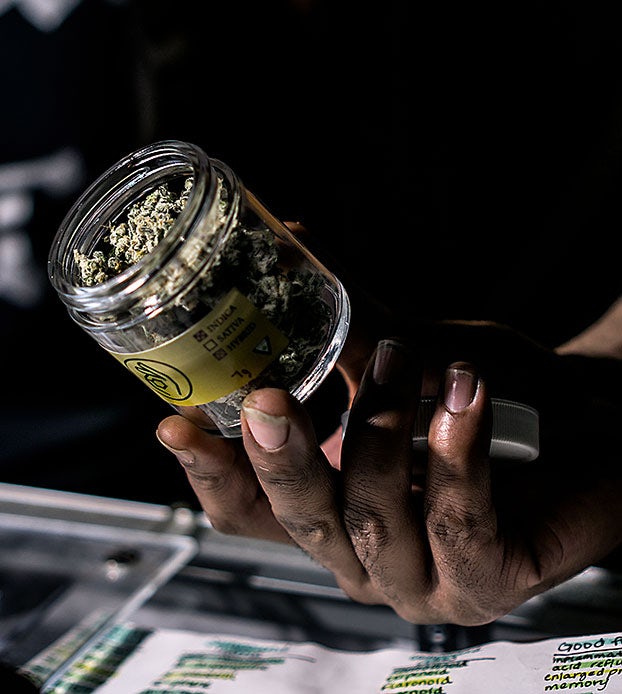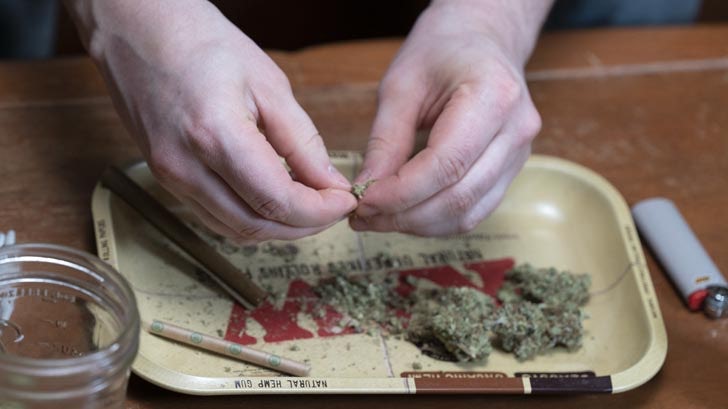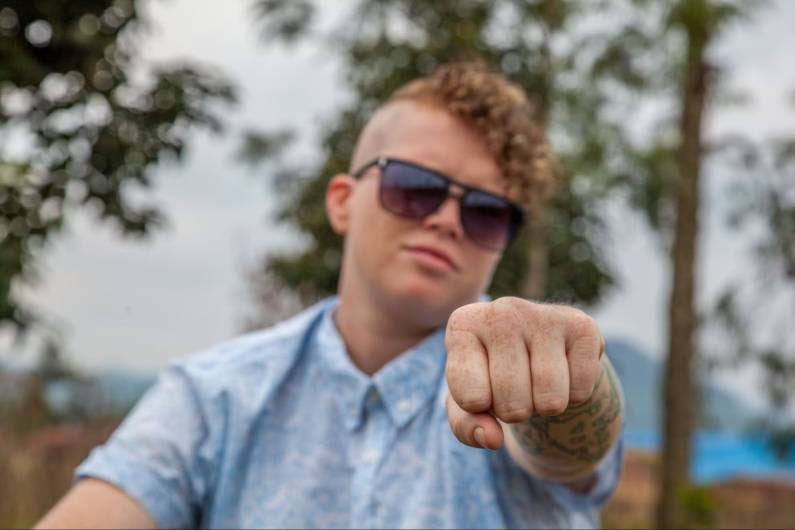The cannabis industry is growing fast, and the players influencing its development and future are constantly changing. There are, however, a number of thought and business leaders who anyone entering the cannabis space should be following.
The following are five figures in the cannabis industry to keep an eye on — both to stay on top of new developments and to get an idea of where things are headed. While it is far from a comprehensive list, these are some people we think you should have on your radar.
1. Steve DeAngelo — Harborside Health Center, Arcview Group

With his trademark long braids and fedora, Steve DeAngelo is something of an institution of his own in the cannabis world.
DeAngelo’s activism began decades ago, as the lead organizer of the annual Yippie Fourth of July Smoke-In in Washington DC. He led the smoke-in protest for a decade, back in the years when marijuana was far, far away from the mainstream acceptance it enjoys today.
In 2006 DeAngelo founded Harborside Health Center, one of the most well-known dispensaries in California. Today the company operates four dispensaries in Oakland, San Jose, Desert Hot Springs, and San Leandro. The dispensary was the focus of Weed Wars, a reality-documentary series that aired for one season on the Discovery Channel.
He is also the author of the 2015 book “The Cannabis Manifesto: A New Paradigm for Wellness.” The big covers the world of cannabis science, law, and culture, and makes a vivid case for legalization of the plant.
In 2010, DeAngelo co-founded The Arcview Group, a cannabis angel investment firm which has to date raised more than $150 million for 160 cannabis-related businesses.
In 2015, he was given a lifetime achievement award at the High Times NorCal Medical Cannabis Cup and in 2019, he was honored at the MJBizDaily Awards Hall of Fame Induction Ceremony in Las Vegas.
2. Gaynell Rogers, Lori Ferrara, and Lindy Snider — Treehouse Global Ventures
The cannabis industry, like so many others, is a male-dominated world. In 2018, Gaynell Rogers, Lori Ferrara, and Lindy Snider joined together to launch Treehouse Global Ventures, an investment house focused on targeting women and minority-founded cannabis businesses, as well as male-founded companies “that have a strong presence of women at C-suite and board levels.”
Each of the three women has an interesting personal story.
Rogers, a three-time cancer survivor, was a founding member of Breast Cancer Watch and a member of the National Academy of Recording Arts and Sciences for more than 30 years. In 2018, she was named Influencer of the Year by the Industry Power Women organization.
Lindy Snider is the founder and CEO of Lindi Skin, a line of skincare products for cancer patients, and spent many years in corporate marketing and sales. She started to research medical cannabis while developing Lindi Skin and spent years investing in medical cannabis when it was only a reality in a handful of states.
Ferrara is “an experienced advisor and a sought-after investor shark” who spent more than a decade managing syndication for Mediatech, Inc (The Oprah Winfrey Show, Jeopardy, Inside Edition). She first began researching medical cannabis while nursing her husband, who had stage 4 tongue cancer. She also survived her own bout with early stage breast cancer in 2014.
According to Treehouse Global Ventures, her vision is for the company “to empower, inspire and mentor these female entrepreneurs while also managing a successful, female-led fund.”
3. Justin Gover — GW Pharmaceuticals

A year after Epidiolex hit the market, there is more than enough reason for Justin Gover to smile. The CEO of GW Pharmaceuticals, which developed Epidiolex, told CNBC in January that in 2019, the drug, a cannabidiol extract used to treat severe forms of epilepsy, brought in a total of $296 million.
Epidiolex received U.S. Food and Drug Administration approval in 2018, the first-ever cannabis product to do so.
Gover has 21 years of experience in the pharmaceutical industry and prior to joining GW, he was head of corporate affairs at Ethical Holdings plc, a UK-based Nasdaq listed company. He has led GW to a market cap of $4.3 billion in August 2019 and his success is largely a story of what big pharmaceutical companies can bring to the world of cannabis, when done right.
4. Dr. Chanda Macias — National Holistic, Women Grow
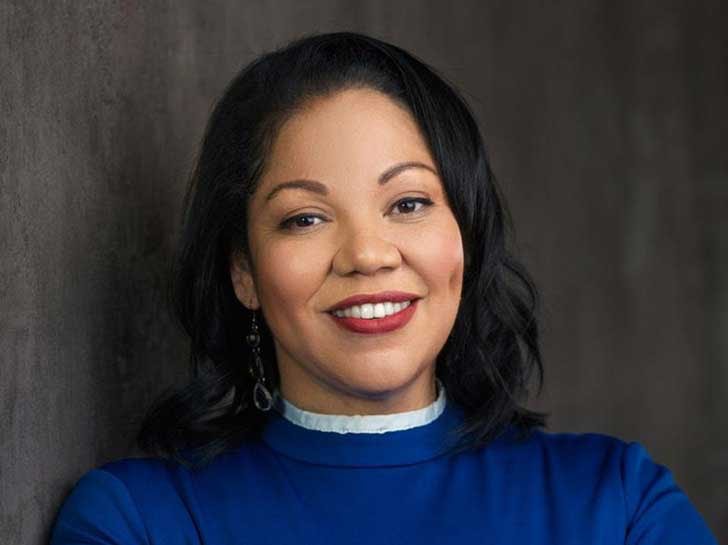
Well before she entered the world of cannabis, Chanda Macias made her mark in the laboratory, and in the world of business.
With a PhD in cellular biology from Howard University, Macias has taken part in research on oral diseases and their treatment for Palmolive, and has contributed to a long list of academic publications.
Today Macias is the CEO and owner of National Holistic, a cannabis and hemp healthcare enterprise. According to Macias’ bio, National Holistic produces CBD and other cannabinoid-based products and also runs a medical marijuana dispensary in the heart of Washington, DC.
Macias also serves as the chairwoman of the Board of Managers and CEO of Women Grow, “a for-profit entity that serves as a catalyst for women to influence and succeed in the cannabis industry as the end of marijuana prohibition occurs on a national scale.”
Macias also serves on the Board of Directors for the Minority Cannabis Business Association and is a member of Americans for Safe Access.
5. David Klein – Canopy Growth Corp
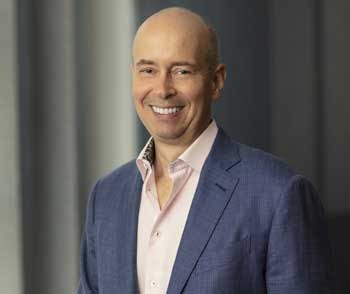
In December 2019 David Klein was hired as the CEO of Canadian Cannabis company Canopy Growth, the largest Canadian cannabis company in terms of revenue.
Canopy Growth was also the first federally regulated and licensed publicly traded cannabis grower in North America, and the company also supports and owns a number of cannabis brands including Tweed, Spectrum Therapeutics, DNA Genetics, CraftGrow, Tokyo Smoke, Doja, Van der Pop, and Maitri.
It has described its vision as “to be the number one cannabis company in the world.”
What’s interesting about Klein is not solely his role as CEO of Canopy Growth, but where he came from. Klein was previously chief financial officer and a major shareholder of Constellation Brands Inc., a beverage giant that is responsible for producing and marketing brands including Corona, Modelo Especial, and Negra Modelo in the United States. Klein’s role with Canopy Growth can be seen as an example of how big business could stand to dominate the cannabis industry in the coming years, and how what was in the not-too-distant past an illegal street drug could now be an industry that is marketed and sold just like Corona or Coca Cola. And if federal legalization becomes a reality in the US in the coming years, we can expect to see “Big Cannabis” dominate the weed landscape.
Sign up for bi-weekly updates, packed full of cannabis education, recipes, and tips. Your inbox will love it.

 Shop
Shop Support
Support


